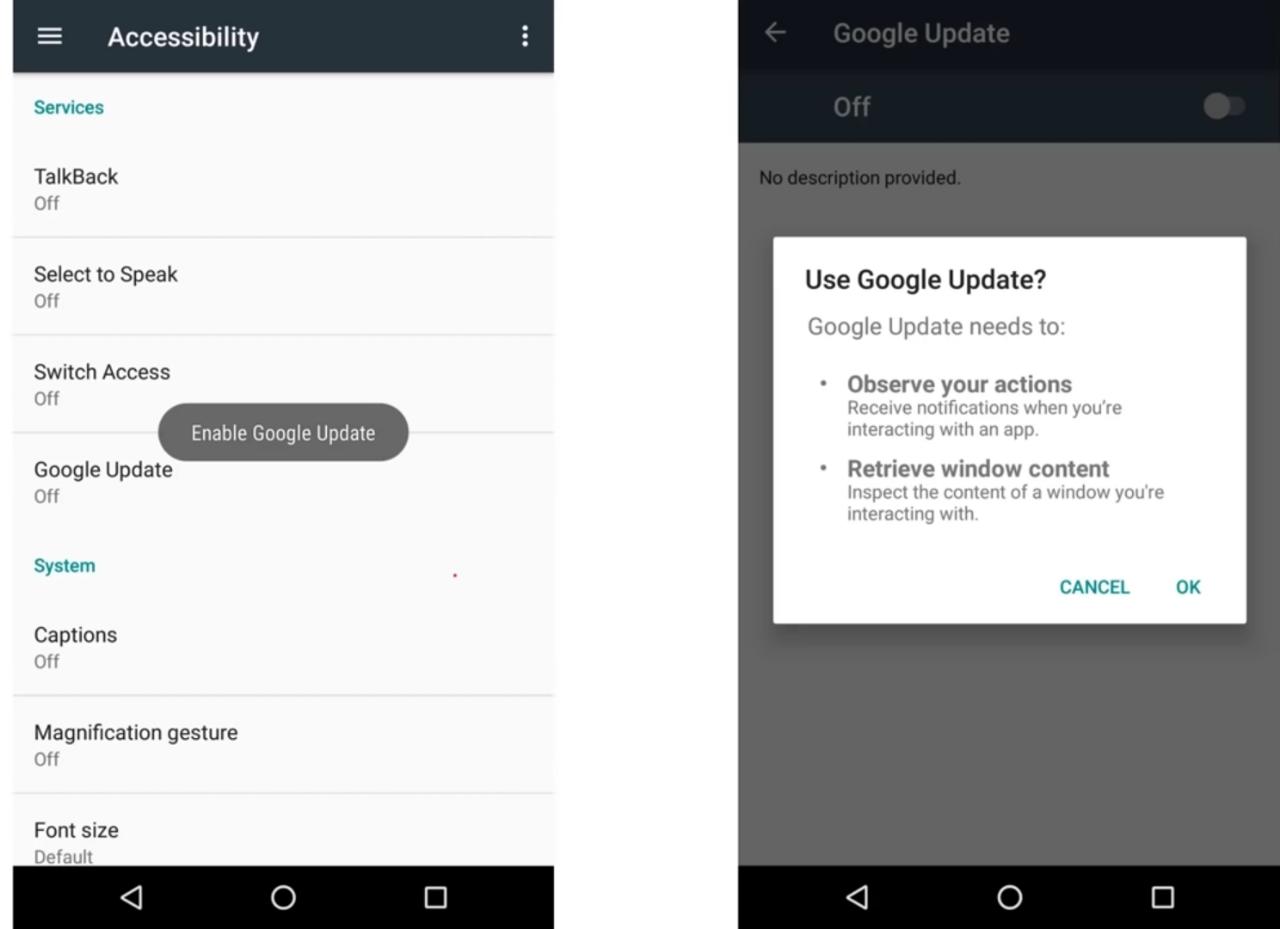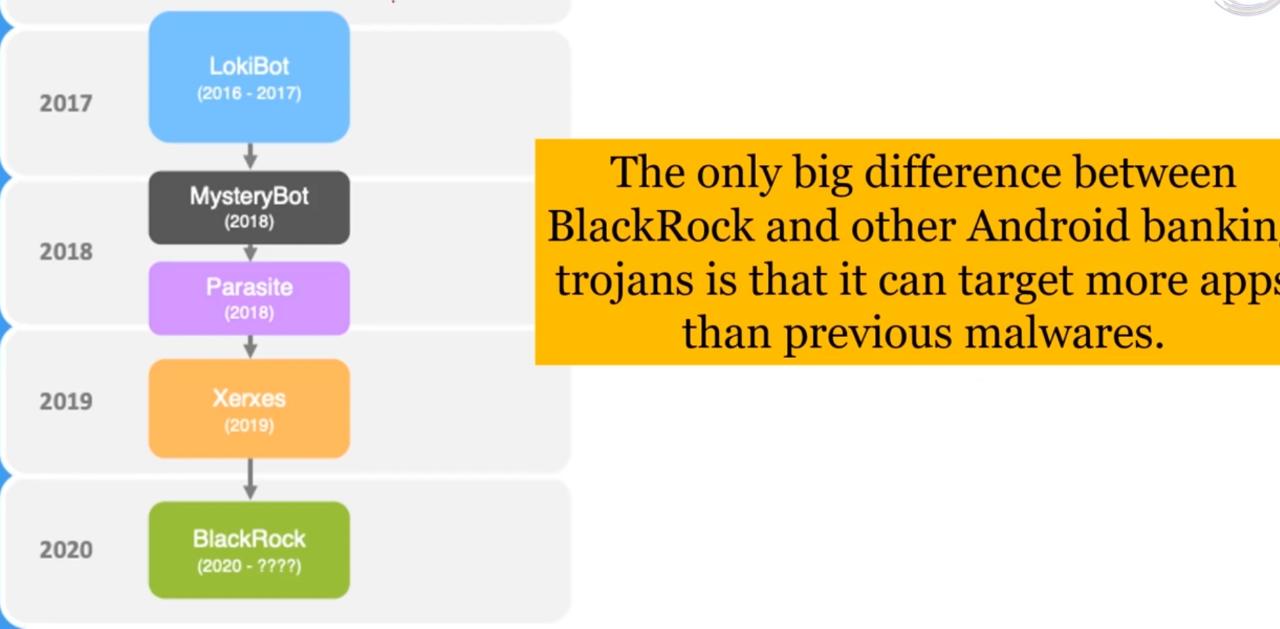Everything you need to know about new Android 2020 virus 'Black Rock'
Android Malware
Android is arguably one of the best-operating systems in the world. This operating system is very popular among people with 80 percent market share. On the other hand, hackers have also been constantly targeting Android users through new methods. Recently there were several media reports which mentioned malware, which was trying to steal the data of Android users as well as empty the bank account. So today we will tell you about the dangerous malware that has been spotted recently.
Android virus is a deceptive software designed for Android operating system. There are many variants of the malware that targets smartphones, tablets, and other devices running this OS. Typically, the virus locks the device and asks to pay money or call scammers for "help."

Android virus is a group of numerous malware infections that exclusively target Android devices android virus is a type of cyber infection that only targets Android tablets and phones. Android virus is a term used to describe a group of malicious applications targeting Android smartphones and tablets. While the mild types of infections might display intrusive ads or redirect to suspicious sites, the more severe threats like trojans, info stealers, and DNS hijackers can take over the device completely, gain root access, download other malware and prevent its removal altogether. Having in mind how the infection rate keeps growing (researchers recorded 116.5 million infections in 2019 alone), how to remove adware from Android is becoming an important topic.
BLACKROCK Malware
BlackRock malware was first spotted in May. This malware was spotted a few days ago. This malware had stolen information about bank accounts from apps like Gmail, Amazon, Netflix, and Uber. Also, this malware made a total of 337 Android apps as a victim.
Aren’t antivirus apps useful?
The new malware is so powerful that it makes antivirus applications useless.
The trojan will redirect the victims to the HOME screen of the device if the victims tries to start or use antivirus software as per a specific list including:
- Avast
- AVG
- Bitdefender
- ESET
- Symantec
- Trend Micro
- Kaspersky
- McAfee
- Avira

Features of BlackRock
BlackRock can perform other ‘intrusive’ operations like:
- Overlaying: Dynamic (Local injects obtained from C2)
- Keylogging
- SMS harvesting: SMS listing
- SMS harvesting: SMS forwarding
- Device info collection
- SMS: Sending
- Remote actions: Screen-locking
- Self-protection: Hiding the app icon
- Self-protection: Preventing removal
- Notifications collection
- Grant permissions
Main symptoms of this Android virus include constant freezes
Getting infected with Android virus is surely a frustrating experience. Pushy ads signal that there's something wrong with your Android device. Security researchers highly recommend avoiding lottery-themed and similar ads that can start interrupting you once you start using your device.
Besides, you should pay attention to such signs as constant freezes on your device. If your phone or other Android-based device has started freezing up and stopping from functioning while you are browsing the Internet, you should install Android antivirus to check it.
Also, pay attention to your telephone bill and track the numbers. If you have started receiving an increased telephone bill, you should double-check your month's report. There is a high possibility that the infection has signed you up for some premium service. To save the money, you have to take care of Android virus removal on your device.
Android virus has already infected millions of devices
Android malware has been spreading around since 2015, but it seems that they won't stop doing that in 2019 and further. Two of the most widespread members of the Android virus group showed up in November 2017. They are known as Matcher Trojan and Tizi spyware. The latter was found in 2015 and has been used to steal personal information from social media apps.
There is no doubt that Android users should pay attention to the security of their devices. In fact, almost all Android viruses are interested in getting personally identifiable information about
Some variants, however, are focused on different things, such as:
- sharing victim’s contact list;
- recording conversations;
- delivering unwanted pop-up ads;
- initiating redirects to various websites;
- infecting the device with other malware.
Mobile viruses mostly spread via free third-party app stores
The android virus has been actively spread via third-party apps that have to be installed on the phone manually. However, new methods used for distributing this threat have started spreading around, and today you can get infected with this virus by clicking on the malicious link as well. In most of the cases, people download this threat to their devices in a bundle with unlicensed or experimental apps that are actively promoted on Google Play store and similar locations.
To avoid this, we highly recommend you to download your apps only from legitimate app stores that check every program before they start promoting it. Google Play Store, Amazon, and Samsung can be trusted in this case. Besides, even if you select any of these app stores, you should still double-check the app before downloading it to your device because you can never know what kind of malware is hiding in it.
If you are interested in cybersecurity, you must have already heard about hackers who managed to add their malicious app to the Google Play store and collected more than 10.000 downloads before it was revealed. Also, it has been reported about affected websites that can download an infected app to your phone automatically.
To keep your device clean and ensure protection against the Android virus, you should stop visiting suspicious/illegal sites and never click links that may show up for you while visiting them. Finally, we believe that it is time to think about mobile antivirus that could help people prevent the installation of malicious apps, including Android malware.
Check out our list of top 5 secure browsers here






